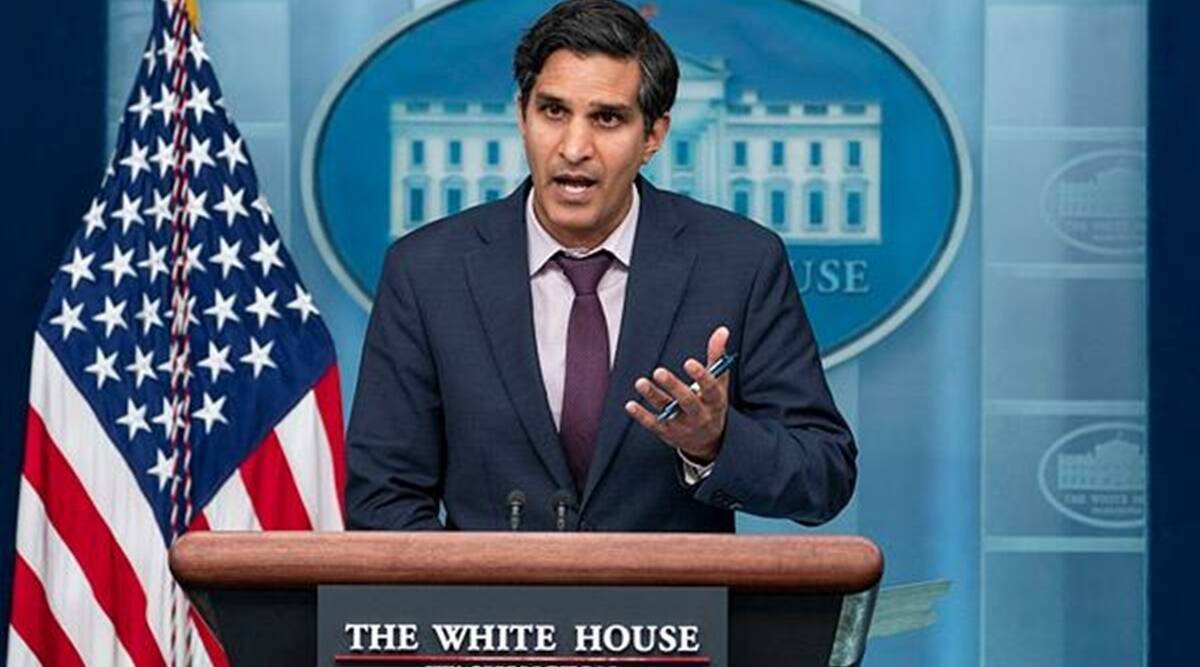 US Deputy National Security Advisor Daleep Singh
US Deputy National Security Advisor Daleep Singh Hours before Russian Foreign Minister Sergey Lavrov arrived in Delhi, United States Deputy National Security Advisor Daleep Singh, the chief architect of the sanctions imposed on Russia, said that there will be “consequences” to countries that “actively attempt to circumvent the sanctions”.
Red-flagging the China-Russia relationship which both sides have termed as one with “no limits,” Singh said that had implications for India.
“No one should kid themselves — Russia is going to be the junior partner in this relationship with China. And the more leverage that China gains over Russia, the less favourable that is for India,” he said. “I don’t think anyone would believe that if China once again breached the Line of Actual Control, Russia would come running in India’s defence. And so that’s the context in which we really want the democracies across the world and specifically, the Quad to come together and voice your shared interests and your shared concerns about the developments in Ukraine and the implications.”
Singh, an Indian-American official and the brains behind the US sanctions against leading Russian figures including President Vladimir Putin and Lavrov along with top Russian officials and oligarchs, met senior officials in the Prime Minister’s Office, Finance and External Affairs ministries in Delhi. He also met Commerce and Industry minister Piyush Goyal Wednesday. Russia has sanctioned Singh as well.
While Lavrov arrived in Delhi Thursday evening from Beijing, he will hold talks with External Affairs minister S Jaishankar on Friday. British Foreign Secretary Liz Truss, who came early Thursday, held talks with Jaishankar.
Stressing that “friends don’t set red lines”, Singh said, “We are very keen for all countries, especially our allies and partners, not to create mechanisms that prop up the ruble and attempt to undermine the dollar-based financial system” to circumvent sanctions.
Underlining that India “currently importing Russian energy doesn’t violate any of the sanctions”, he said: “We would not like to see anyone taking advantage of the situation to rapidly increase energy supplies at cross purposes with our strategic objectives in the sanctions regime.”
When pressed whether any specific transaction like the S-400 will face consequences, he was diplomatic: “That’s the subject of private discussions, I am not going to share that…on specific transactions and hypotheticals, I’m going to leave those conversations private.”
Making a case for the sanctions, Singh said: “The intent of these sanctions is to change the strategic calculus to show unequivocally that if he continues to wage this needless, illegal, unprovoked war of aggression, it will be a strategic failure.”
He listed out “five channels of sanctions:” imposing “immediate and acute costs” on Russia’s largest banks and central bank; cutting off “necessary” technologies; revoking MFN status and denial of IMF, World Bank, borrowing privileges from Russia; “holding to account the Russian Kleptocracy” and “downgrading Russia’s status as a leading energy supplier.”
“I have come here in a spirit of friendship to explain the mechanisms of our sanctions, the importance of joining us to express shared resolve and to advance shared interests. And, and yes, there are consequences to countries that actively attempt to circumvent or backfill the sanctions,” Singh said.
Singh was appointed Deputy National Security Advisor, dealing with international economics, by the Biden administration last year.
- The Indian Express website has been rated GREEN for its credibility and trustworthiness by Newsguard, a global service that rates news sources for their journalistic standards.

